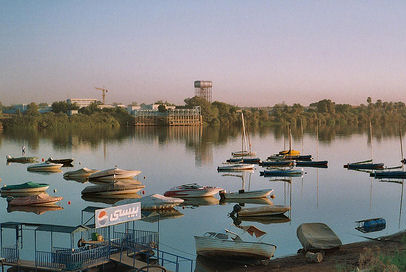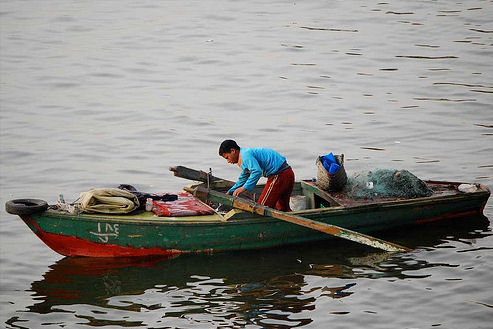
“Spatial scales do not emerge passively or in a political vacuum. Rather, they are produced through the exercise of power, as the outcome of negotiation, struggle, and compromise" (Perreault, 98).
——————————————
In addition to the current threat of a waning environment, the Nile Basin region is plagued by the historic marauder, power. On different levels and in different intensities, the give and take of power within the Nile Basin has hindered the progress of the NTEAP. The organization and management by various actors has had its benefits. However, strong-arming by hegemonic nations downstream and international agendas by world organizations have served to overlook certain plans and procedures outlined in the NTEAP guidelines. Perreault emphasizes the give and take between levels of power in a scalar situation such as that of the NTEAP. Social actors such as local communities (grassroots), state governments and organizations (regional), and the World Band and United Nations (international) proceed according to structural forces (Perreault 2003). Consequently, a political struggle is created, often overshadowing the original aspirations of the formed group. This is the most extreme case, where chaos and violence ensues; in this case study, we currently view only disagreement and neglect (things which can indeed be rectified by focusing on the positive outcomes of the program).



Kernohan and De Cain (2004) claim that the larger the negotiating table, the greater the chance (and in this case, inevitability) of dispute between and amongst actors. Power-holding and finances have poisoned certain positive aspects of the project, obstructing the truly harmonized goal of education, improvement, and regional cooperation. Globally established and influential actors which have historically had a firm grasp on control in un- and under-developed regions can easily exert their influence and disperse their capital where they themselves see fit. Although associations such as the World Bank and the United Nations have done a great deal of good throughout the world, consequences of their sheer size and distance from the ground have deemed them too detached and uninterested in the actualities and fates of these areas.

To read more on the role of international actors, please click here.
Kernohan and De Cain (2004) concentrate their research on trade liberalization and climate change in a globalizing world. Still, their optimism for international cooperation with regional integration policies remains valid and is reinforced by the work being done in the Nile Basin. The NTEAP under the NBI is aimed at regulatory harmonization, a multi-national agenda grounded in a common purpose and goal. Each state's recognition of the importance of technological advancement, information sharing, and community education is critical to begin building the foundations for an effective environmental cooperative (Kernohan and De Cain 2004). The NTEAP should be commended on its ability to bring disputing countries together under the common desire to protect the environment. Yet, there remains quarreling and distrust amongst states in terms of policy which puts a halt on the progression.

To read more about the breakdown of regional cooperation, please click here.
It seems to be the local populations which are affected most by the shortages of cooperation, neglect by larger scalar actors, and aimed distribution of funds. Perreault asserts that "political and economic power is exerted nationally and globally in ways that simultaneously produce €˜the local' as immobile and relatively disempowered" (Perreault 99). Yet, though these localities are often forgotten in the grand scheme of regional, governmental, and international design, they bear the brunt of the consequences. They too have a voice. If we look at the local level within the Nile Basin region, there are a myriad of grassroots movements with demands and suggestions. Though the regional and international figures of the NTEAP have a monopoly over the politics and wealth of the project, the local communities have the passion and every day impacts of the initiative to move it forward in a more positive and productive manner.

To read more about the disregard for and actions of local communities, please click here.